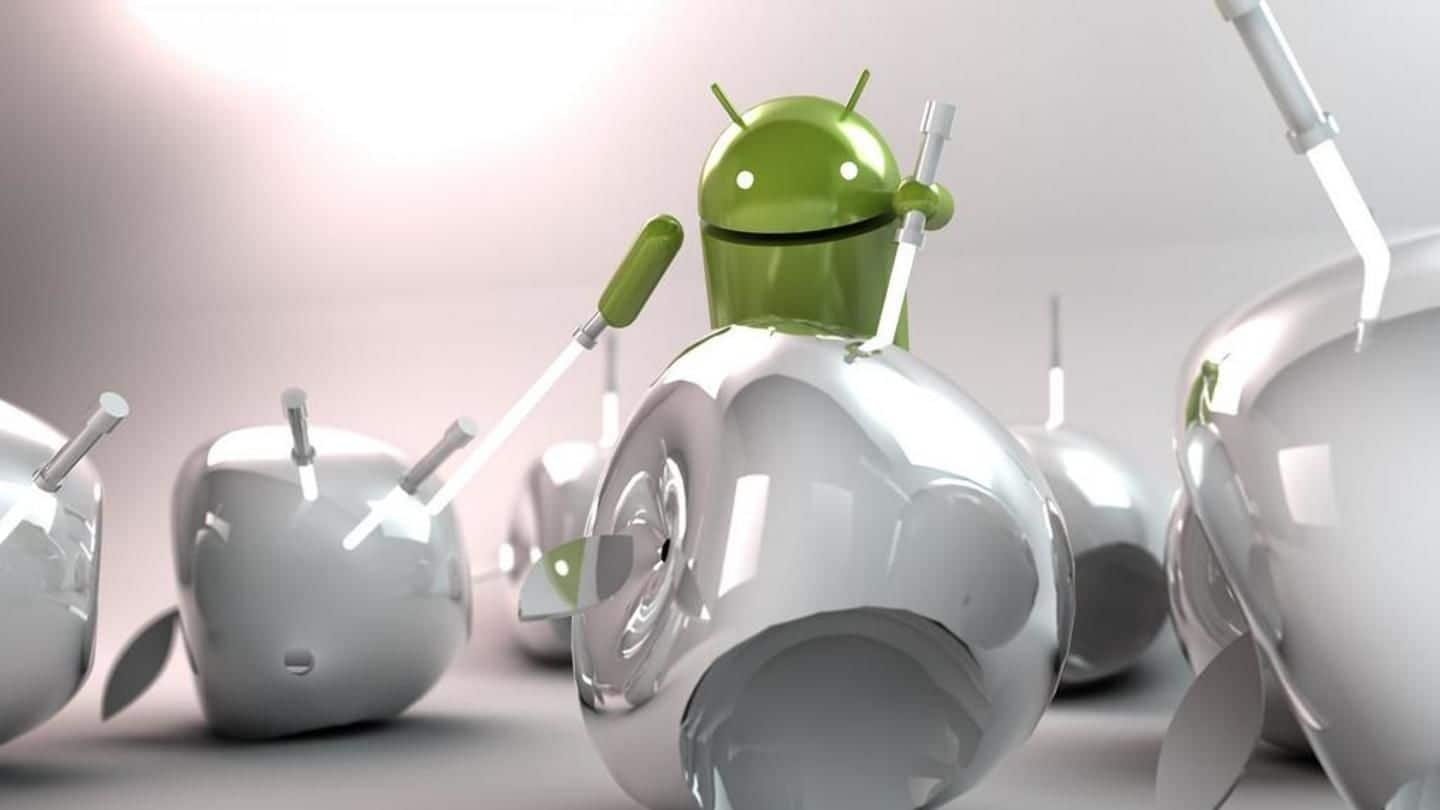
7 advantages Android users have over iOS users
What's the story
The 'Android vs iOS' debate has been raging for over a decade now, and despite different groups putting forth different arguments, there seems to be no resolution to it. Some things, however, are clear - Apple's closed-off OS offers tighter security than Android does, and there's no argument against that. However, Android users do enjoy certain notable advantages over iOS users. We list some.
Hardware
Android users are spoiled for choice, Apple offers limited options
This should come as a no brainer, but one of the biggest advantages Android users have over iOS users is the sheer number of Android devices available in the market. Compared to Apple's limited number of high-priced devices, and considering smaller battery sizes and limited on-device storage options offered by Apple, Android users have much greater choice in device selection and hardware choice.
Universality
Universality of Android-compatible accessories is a big plus
Another big win for Android users is the large number of compatible accessories available for their devices. Case in point is Android's charger - unlike Apple's proprietary Lightning port, USB cords are almost universally compatible, can be found more easily, and don't even compromise on fast-charging capabilities. Android devices also support a large number of third-party developed accessories, thereby offering more choice, again.
Customizability
Android offers a customizable aesthetic experience, Apple doesn't
Like choice, customizability is another of Android's key strengths. Unlike the set-in-stone iOS interface, Android users can theme their phones, customize home screen layouts, and add widgets and shortcuts. Additionally, custom UIs, like those being used by Xiaomi and Honor, can also completely change Android's aesthetic experience. iOS offers background-changing capabilities and limited widget support, but that's about it in terms of interface customizability.
Control
Android offers greater control over your device compared to iOS
In addition to interface customizability, Android users also get customizability in terms of apps. Whereas Android users enjoy the liberty of ditching its default apps in favor of third-party apps they prefer, such freedom is absent in iOS where default apps largely can't be changed, and customization in general is treated with more suspicion. Thus, Android is more suited to those who enjoy tinkering.
Apps
App offerings on Android are far higher in number
As of April 2018, Google PlayStore had 3.5 million apps as opposed to 2.2 million apps found on the App Store. In addition to offering more apps on PlayStore, Android also supports app installations from other app stores like Amazon's, and allows manual installation of most downloaded "apk" files. While this choice comes with potential risks, it shouldn't bother vigilant users.
PWAs
Progressive Web App support is a big plus on Android
Progressive web apps (PWA) offer another advantage to Android users. Android allows the use of PWAs which are browser-based light applications that don't even require robust internet connections. They require no downloads or updates, but act like native apps - case in point is Flipkart Lite. While Apple is slowly introducing PWA support, it's still in beta, and has several issues.
Cloud storage
Apple needs to work on its storage offerings
Apple devices offer notoriously small on-device storage unless you can pay big. Neither is iCloud up to the mark. On the other hand, Google Drive gives Android users a free 15GB, iCloud offers 5GB for free. Beyond that, it's all paid and prices are similar. Additionally, Google Photos offer free unlimited storage. While Google Drive is available for iOS, its presence doesn't address iCloud's initial shortcomings either.